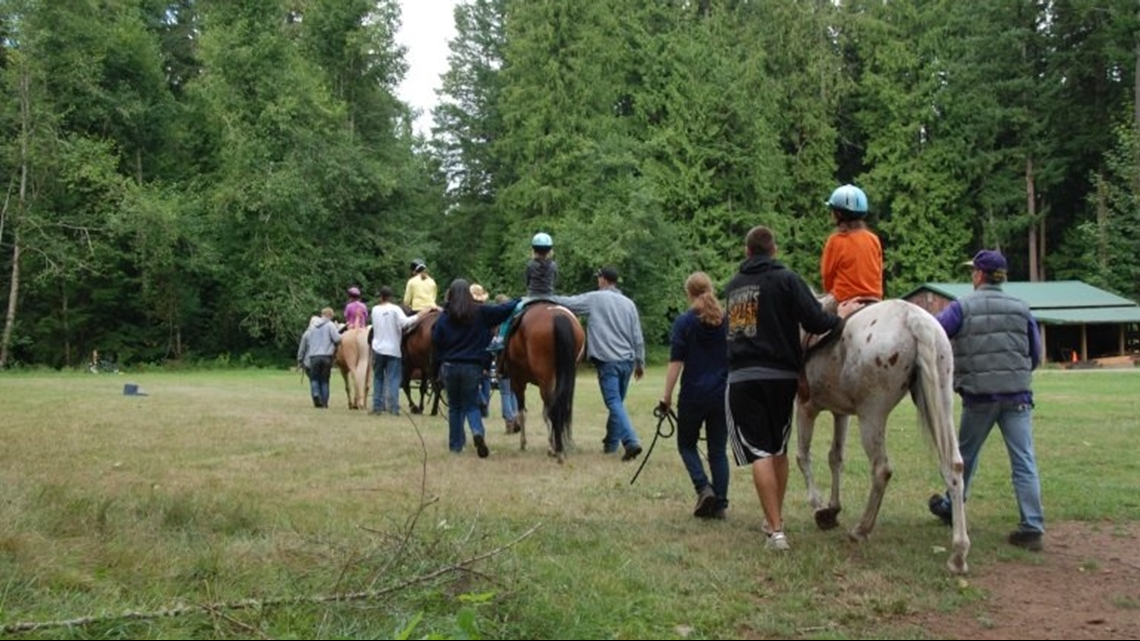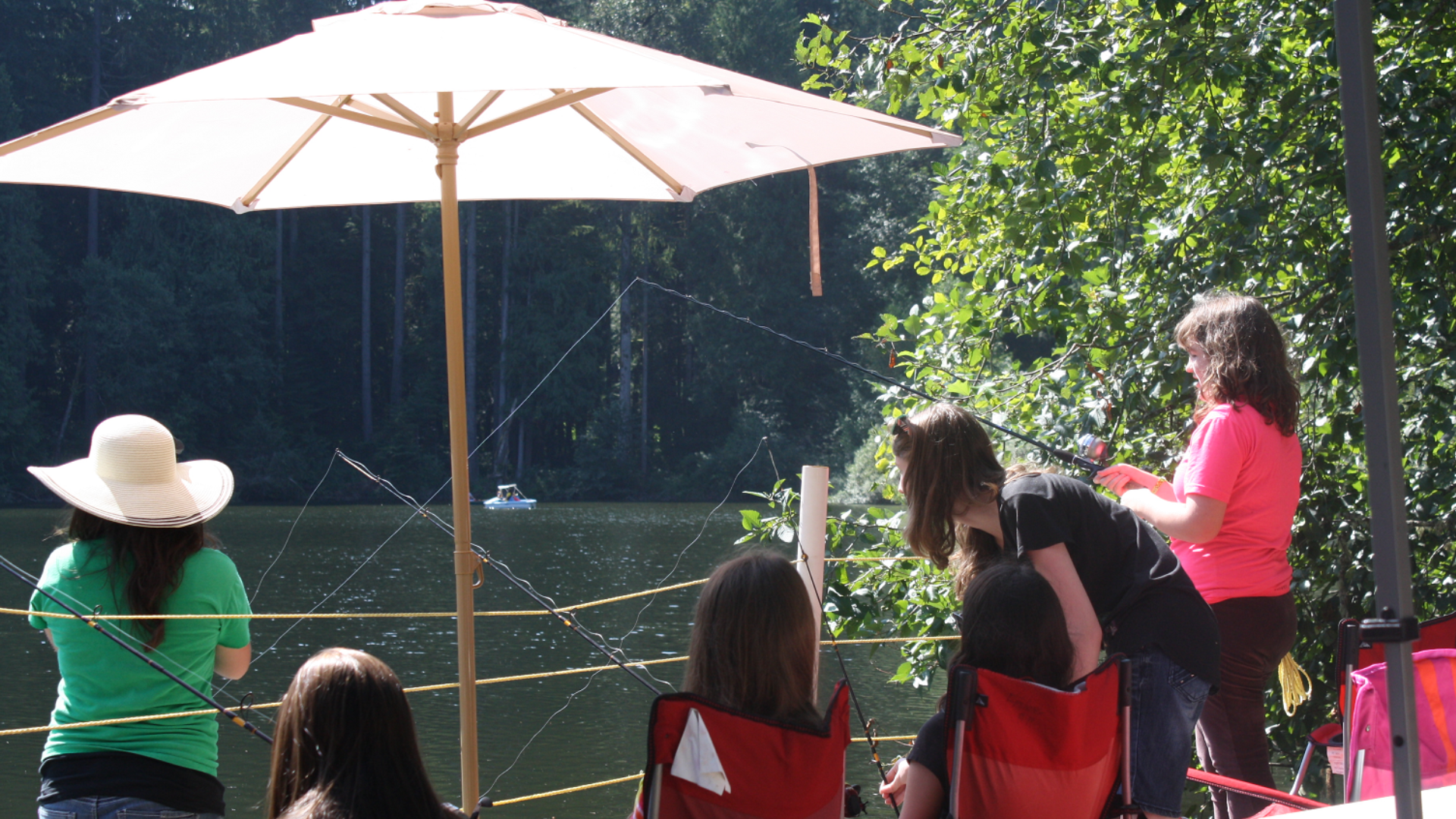SEATTLE — "Camp is a really cool thing and it allows [children] to get some experience and independence to grow up a little bit, but they have to be ready for it," said Dr. Tony Woodward from Seattle Children's. "The most important thing is that as parents, we feel that our kids are ready for camp and they may or may not be."
Problems can arise if a child is following in the steps of an older sibling or isn't fully ready for a camp experience. Ideally, a child will express interest in attending a summer camp. Making sure they are prepared opens the door for your them to experience all the benefits of Summer Camps like lifelong friendships, independence, and advocating for themselves, "It's really important for a little child to feel like they're bigger than they are and farther along and [summer camp] gives them that opportunity."
Here are some easy tips for parents to ensure their child is ready for camp and has a safe, healthy, and happy experience.
1. Don't forget sunscreen and bug spray.
2. Ensure they stay hydrated with a water bottle.
3. Don't share hats or head objects to avoid lice.
4. Help your child get excited:
Nerves and anxious feelings on the first day of summer camp are normal feelings for a child. "One of the things to do is to acclimate them to the camp," said Dr. Woodward. "Show them what the camp is like, whether it's online or in-person and listen to them." By listening to your child and involving them in the process, you can evaluate if your child is ready for camp, or whether it's a good idea to hold off.
5. Provide camp with a complete health record.
Most camps are equipped to handle medical issues like allergies, dietary restrictions, and other issues, but if the camp is not made aware of the situation, it can be hard for them to respond to in a way that is necessary for your child, "If they don't understand all the nuances of your child, that can be really hard. Parents sometimes worry about that, about stigmatizing their child or minimizing the health issues."
6. Reduce anxiety by practicing to prevent homesickness.
"I think the first part is preparing to be away from your family, away from your support unit," said Dr. Woodward. "That could be just little day trips, it could be outings, hikes. It could be overnight trips to Grandmom's or a friend's house. If they can get through a day of that and realize it's okay to be away for a day, that there's support at the other end of that it really helps them a little bit as well."
7. Don't let their first time away be a week away.
Again, first day nerves are normal, but these feelings can be reduced if their summer camp experience is not their first time away from their family and support system, "We learned that the hard way," said Dr. Woodward. "When my son went to a camp, the first day he was crying and anxious and we thought we'd have to go pick him up. We had a plan to call him the next day and [we] never heard from him the rest of the week."
8. Follow camp rules about electronics, and don't circumvent these rules.
"Camps are to get back to nature, to allow kids to learn things outside of the screen and we're so connected now, we feel that we have to have that connection," said Dr. Woodward. "The camp will probably have rules that you can't have electronics or if you do they have to be in the camp counselor's office. Don't try to sneak something in."


9. Create a letter or communication plan.
"It's a great idea to have a plan, whether it's phone calls or letters," said Dr. Woodward. "What we did for one of our children, he's not a great writer, so we wrote the letters for him. It say's 'Dear Mom,' and it has a bunch of checkboxes, 'I miss you', 'I'm Fine' and it comes with a stamped envelope."
While Dr. Woodward's son never ended up sending a letter, the opportunity for communication with parents could ease feelings of homesickness if a child is experiencing this.
10. Have child help with packing bags for camp.
"It's important to have them involved in every step of the way so they don't feel they're being 'done to', but they feel like they are part of the process," said Dr. Woodward. "They may find one or two things that really support them, like a blanket or a stuffed animal or a picture or a special hat. Something that just reminds them of home, so that when they get a little bit homesick, they have something to hold onto."
Dr. Woodward also recommends putting something special in their luggage that won't embarrass them, but will let them know that you are thinking of them while they are away.
11. Get a physical exam before going.
"The physical exam is really important, especially if you're going to a camp that has a lot of activities or if you have a chronic disease," said Dr. Woodward. "If you have a chronic disease like asthma or diabetes, that could impact your ability to participate in the act, you should make sure you're as good as you can be, that you're not going and putting yourself at risk while you're at camp."
12. Kids should take swim or water survival lessons.
If water activities are involved in a child's camp experience, make sure the camp is well-supervised, and that your child knows how to swim, "It's really important, one for the tragedy of somebody going swimming and they can't swim, but two it gives the kids confidence," said Dr. Woodward, "If they don't have confidence, then they feel like they're not really part of the group, and then they start looking at themselves differently. You want them to be able to gain respect and confidence while they're there and having some framework to build on really helps them a lot."
Check out Seattle Children's blog On The Pulse for more information about children and summer camps.
This segment is sponsored by Seattle Children's. Watch New Day Northwest 11:00 weekdays on KING-TV Ch.5 or streaming live on KING5.com. Connect with New Day via Facebook, Twitter, Instagram.

